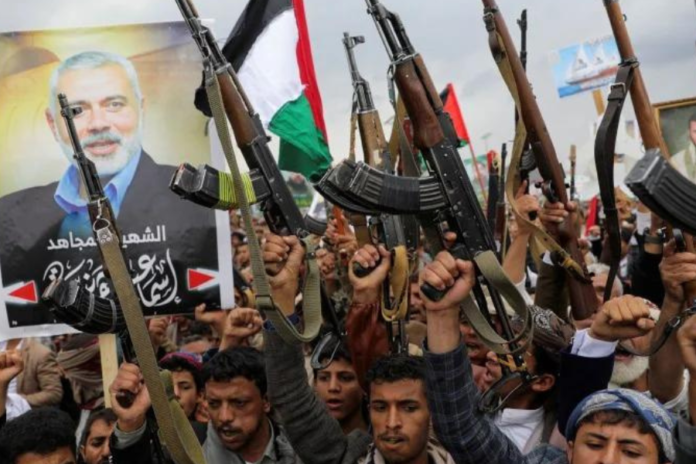The Islamic Republic of Iran is going through a trying moment. Tehran is fully aware that dictatorships can be overthrown by chaos and humiliation. Shia Iran’s influence over Lebanon, Syria, Iraq, and other regions is also in jeopardy. Stated differently, Iran’s hand has been tied by the assassination of Ismail Haniyeh.
It must act to maintain the stability of the government, but it is ill-equipped to deal with Israel directly and the probable simultaneous engagement of the US Fifth Fleet in Bahrain. Iran also has an immediate problem in determining the degree of this security breach and adjusting its approach to stop further weakening of its security apparatus.
After Haniyeh’s murder, Iran will probably arm its proxies in Lebanon and elsewhere. It is rarely mentioned that Iran’s faltering economy significantly restricts its options as well. The country is in a dangerous situation as a result of years of crushing sanctions. Iran’s population, tired of constant economic suffering, is becoming increasingly dissatisfied. Iran’s strategic calculations are further complicated by the economic downturn, which not only makes it more difficult for it to finance military operations but also increases internal instability.
The only possible answer seems to be renewed assault, including targeted missile attacks from Iraq, Syria, and Lebanon. Tehran really cannot afford a straight conflict. The probable destruction of Iran’s nuclear program, which would be disastrous for the revolution, is the country’s main issue in such a battle.
Also Read: How will Hamas chief Ismail Haniyeh killing affect India?
Iran’s disinterest in a major war does not guarantee that one will not break out. Israel doesn’t allow much room for maneuvering because it has its finger poised over the nuclear threat. All-out conflict might potentially be started by Iran or Israel miscalculating the extent of military participation. It is the ultimate risk management problem.
For the time being, Iran’s clerics are learning that fighting a two-front war against both a regional and an international superpower is very different from putting down unarmed women who are protesting the hijab.



